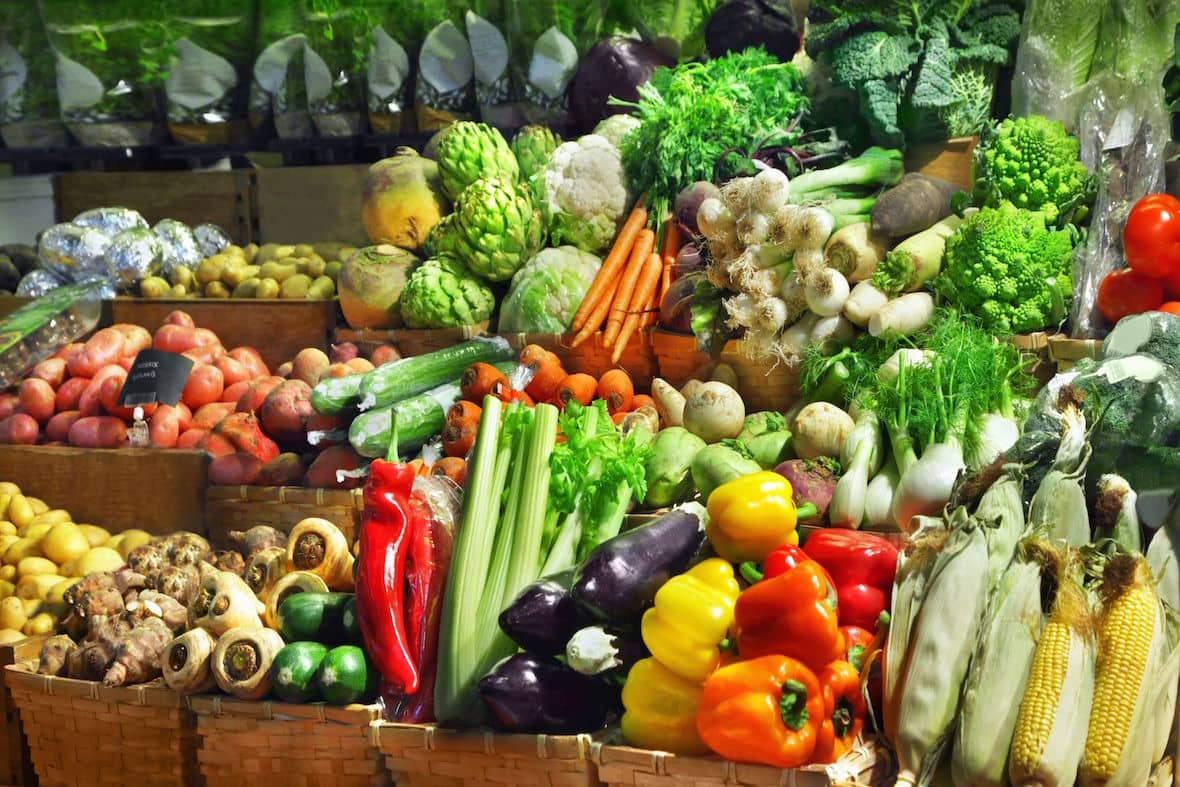
A new study on the state of agriculture in the Caribbean has found that currently, regional countries face major challenges in their attempt to improve the competitiveness of the agriculture sector, including fisheries and aquaculture.
The 189-page study was published by the United Nations Food and Agriculture Organization (FAO) and the Barbados-based Caribbean Development Bank (CDB).
The CDB, which is ending its 49th annual Board of Governor’s meeting here on Thursday, said that since its inception, it has identified the development of the agriculture sector in its borrowing member countries (BMCs) as one of its main priorities.
The region’s premier financial institution said that in 2017, following 40 years of structural change in the BMCs’ agricultural sector, it decided to update and revisit its Agriculture Sector Strategy, which dates back to April 1981.
“This decision would allow the CDB to confront old and new challenges with a new vision, especially considering the BMCs’ heavy dependence on food imports, the end of the preferential European Union market access for sugar and bananas, financial instability, and climate change,” it said.
According to the CDB, the majority of the BMCs have achieved key development milestones in the post-independence era, including relatively high human development indices and middle-income status. Nonetheless, BMCs continue to face significant socio-economic and climate challenges.
These include low and variable economic growth; unsustainable debt and weak fiscal management; high unemployment; high prevalence of non-communicable diseases; vulnerability to the effects of climate change and natural hazards; environmental degradation; crime and increasing threats to citizen security; as well as persistent and extreme poverty and food insecurity.
The bank said that most of these socio-economic and climate challenges bear distinctive gender imbalances.
“Today, BMCs face major challenges in their attempt to improve the competitiveness of the agriculture sector, including fisheries and aquaculture. Growth in agricultural productivity has been slow and the sector suffers from high trade costs and a low capacity to comply with modern food safety and quality standards,” according to the new study.
The study found that consequently, the agriculture sector has been unable to adequately respond to rapidly growing demand for high-standard, agri-food products from the tourism, processing, and retailing sectors, in and outside the region.
“Instead, the growing demand in these sectors in the region is mainly fulfilled by imports. The region’s agricultural sector is also constrained by ever-growing pressure on natural resources and a high vulnerability to climate change.”
But the study found that there is great potential for strengthening market linkages and helping farmers, fishers, and agri-food businesses to catch up with current best practices and technologies.
It said that if the region succeeds in fulfilling this potential without further compromising its natural capital and related ecosystem services, agriculture can be an important source of economic growth and a key contributor to poverty reduction, particularly for households that benefit less from growth in other sectors.
“In addition, through the promotion of inclusive and sustainable agricultural development, the CDB can contribute to overcoming major socio-economic and environmental challenges in the region, including food and nutrition insecurity, obesity, youth unemployment, gender inequality, the unsustainable use of natural resources, and climate change.”
The CDB said that the report on the “State of Agriculture in the Caribbean” supports the development of its new Agricultural Policy and Strategy Paper (APSP), by identifying key trends in agriculture in BMCs, and the related opportunities for investments to promote growth, reduce poverty, and ensure sustainability.
Regarding food security and malnutrition, the study noted that though it has decreased slowly over the past 20 years, undernourishment is still widespread in BMCs.
In Haiti, undernourishment levels are as high as 77 per cent, pulling up the averages in BMCs. However, the average in the smaller Caribbean islands, including many of the richer regional states, is close to 15 per cent.
In addition to under-nutrition, other forms of malnutrition and its consequences, such as obesity, are on the rise, which is a cause for concern. In fact, obesity has increased significantly since 2000 in all BMCs.
“This suggests that the BMCs are increasingly vulnerable to “the double burden of malnutrition” – the combination of undernutrition and poor diets which leads to obesity. In all BMCs, except Haiti, food availability exceeds the established food energy requirement guidelines.
“The greater problem for food and nutrition security is access to food, or more specifically, the lack of access to food, which is strongly related to poverty. Not surprisingly, food access is low in countries such as Haiti, where a large share of the population lives under the poverty line,” the study noted.
It said, moreover, BMCs spend more than half of the value of total exports on food imports, and this share is increasing.
“While it is relatively low for Continental States, such as Guyana, which are net exporters of cereals, this share has increased to high levels for the Small Island States and Haiti. Grenada and Haiti in particular depend heavily on their foreign exchange revenues to import food,” the study found.
It noted also that a high proportion of this imported food is calorie-dense, high in fat and high in sugar.
“As these products are more affordable than heathier alternatives, poorer households are more likely to make unhealthy nutritional choices, which lead to increased obesity levels.”
The study also found that although the region performs well compared to other developing regions in international comparisons, gender inequality is still a major concern.
“Women in the BMCs have fewer economic opportunities, earn lower incomes, are more likely to be unemployed, and have lower political representation than men. Women account for 22 to 30 per cent of the registered farmers in the region.
“Despite this, women have fewer opportunities due to limited access to finance, land, networks, information, and decision making in organizations, such as farmer organizations, governmental bodies, and companies.”
The study noted that there are many complex gender issues in domestic and family life in the Caribbean, not only in relation to the use of time, accumulation of savings, distribution of food, access to and control over money and other resources, but also in relation to violence perpetrated on those who are most vulnerable.
It said that gender-based violence is widely perceived as a persistent and pervasive issue, which threatens resilience and severely damages the human capital base of BMCs.
Advertise with the mоѕt vіѕіtеd nеwѕ ѕіtе іn Antigua!
We offer fully customizable and flexible digital marketing packages.
Contact us at [email protected]
















